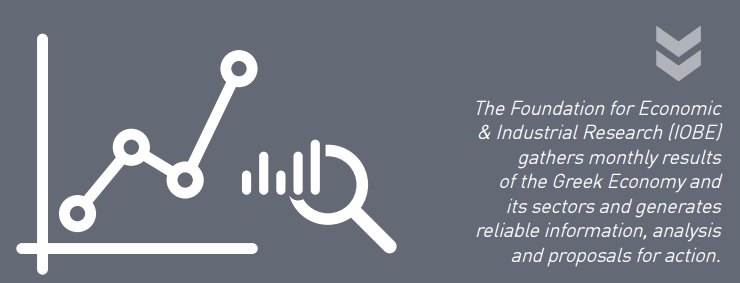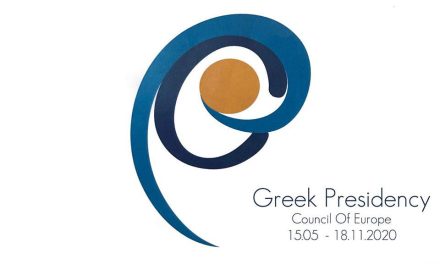Nikos Vettas is Director General of the Athens-based Foundation for Economic and Industrial Research (IOBE)* and Professor of Economics at the Athens University of Economics and Business. In his opinion piece at the Greek newspaper “To Vima” (The Debt Paradox / Το παράδοξο του χρέους, 28.5.2017) Professor Vettas comments on the recent Eurogroup (22.5.2017) and the ongoing negotiations concerning the Greek adjustment programme. He underlines that the growth of the economy is the great objective, not only for Greece, but also for the creditors who want their money back, but investments will not come if there is uncertainty about the terms of financing the economy.
Professor Vettas calls for policies to diminish the burden of the impact of state functions on the economy and points out that the low level of trust between the creditors and the Greek government undermines their willingness to proceed to the necessary debt relief measures. He concludes that it is the creditors’ responsibility to guarantee that the debt will not have an excessive impact in the future as long as the development policies are promoted, while the Greek government should focus on gaining the creditors’ confidence:
“Only those who do not understand the dynamics and depth of the Greek crisis were caught by surprise last week when the alleged definitive solution to the public debt issue was not reached. However, the fact that Greece’s participation in the quantitative easing (QE) program is pending along with the clarification, broadly speaking, of the terms of short-term financing of the economy are negative developments. Regarding the expected developments, key constraints should be taken into account, as they define a path for the growth of the Greek economy; a growth which, albeit visible, is rather narrow, both economically and politically, at least for the time being.
When the creditors’ motives are put under the microscope, it is clear that the debt service burden on Greece’s public fund, in the short term, is relatively small and the economy can withstand it. However, as long as questions about debt servicing remain unanswered, including the way in which the economy is financed in the medium and long term, the investments needed for growth will be delayed. In this respect, greater clarity about future planning is necessary.
Although this negative impact on investments is rather comprehensible, the main reason that a definitive solution to debt is not provided for now, doesn’t lie so much on the political constraints in the countries that act as creditors. Such constraints are certainly real, however the core issue is the lack of confidence. Many creditors hold the view that the debt is the only mechanism which guarantees that Greek governments, present and future ones, will not overturn the adjustment policy. Regardless of whether they are right or not, they believe that on the basis of pre-crisis and long-term experience, the Greek economy will be derailed again, without leverage and a strict supervision mechanism in place.
Thus, perhaps, a paradoxical figure appears. The growth of the economy is the great objective, not only for Greece, but also for the creditors who want their money back. Investments and reforms are also needed for this. Investments will not come on a large scale if there is uncertainty about the terms of financing the economy in the future. However, when clarity about the future course of the debt is taken into account, incentives for reforms are put into question.
By following this logic, the necessary arrangements for Greek public debt will be made gradually and conditionally. For this reason, growth rates in the coming years may be positive, but not very high. Only if a significant improvement in confidence is recorded, can this process be accelerated. In addition, one should not forget that the lifting of capital controls is an essential intermediate growth target, and that this improvement in trust must be put in place. Moreover, the persistence on the IMF’s involvement in the program fully reflects this very lack of confidence.
It goes without saying that creditors are also partners in Europe and are directly interested in it. Even those who embrace the orthodoxy of budgetary discipline perceive the limits that exist for the Union to function. In any case, even the fiscally strong countries realize that there will not be much room for France to fail in the next few years, as the whole building will be rocked. Together with the actions of the ECB, and in response to Brexit, consensus actions after autumn are expected, mainly on the initiative of the Franco-German Axis. Regardless of the success rate of this policy, Greece can benefit if it is properly positioned.
In any case, the most important issue is the state of the Greek economy itself. Enhancing fiscal stability is a very important basis. However, the policies pursued do not sufficiently diminish the burden of the impact of state functions on the economy nor promote its openness abroad and new entrepreneurship. As a result, the adjustment is extremely slow and can easily be overturned.
By putting together the aforementioned parameters, one can define a path that can lead the economy upwards, starting from today’s basis. Its limits consist in maintaining relatively high surpluses in order to avoid new financing needs as long as the current program and its extensions are completed, coupled with a gradual exit into the markets and with persistence in investment-enhancing policies. However, this path, albeit feasible, is very narrow, given the not insignificant risks to the pace of investments, political constraints in the country and developments on the creditors’ side.
It is therefore a joint responsibility of both the Greek and the European side to expand this narrow path, so as to render it less vulnerable to disruptions and failures. Both sides have the opportunity to launch the beginning of the end of the Greek crisis. The creditors should clarify that the debt will not have an excessive impact in the future as long as the development policies are promoted, without insistence on excessive surpluses; the Greeks, on their part, should focus on gaining the creditors’ confidence. However, there exists no guarantee that this will happen and that myopic policies and other priorities will not prevail. Together with a sense of responsibility, realism is required.”
* Established by the Hellenic Federation of Enterprises in 1975
Read more: IOBE’s Reports on the Greek Economy; IOBE’s Research Projects & Activities
See also: Finance Minister confident of deal on debt relief, defends government’s social policy; An agreement on debt could end the seven-year recession cycle for Greece















